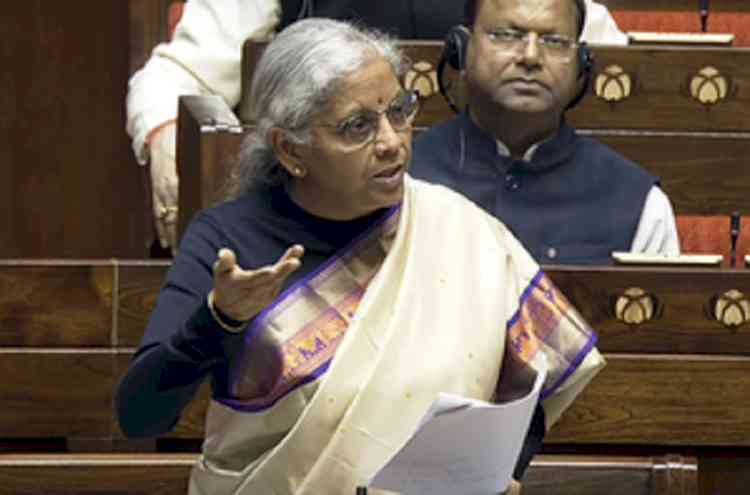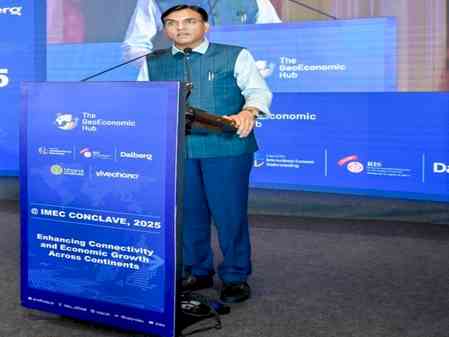Govt's White Paper on Economy: Why now?
Finance Minister Nirmala Sitharaman on Thursday presented a White Paper on Indian economy in the Lok Sabha.

New Delhi, Feb 8 (IANS) Finance Minister Nirmala Sitharaman on Thursday presented a White Paper on Indian economy in the Lok Sabha.
In the very beginning, the Finance Minister explained the question of 'why now' a White Paper on UPA era 2004-14 economy, saying, "In 2014, when we formed the government, the economy was in a fragile state; public finances were in bad shape; there was economic mismanagement and financial indiscipline, and there was widespread corruption.
"It was a crisis situation. The responsibility to mend the economy step by step and to put the governance systems in order was enormous. Our government refrained from bringing out a white paper on the poor state of affairs then. That would have given a negative narrative and shaken the confidence of all, including investors.
"The need of the hour was to give hope to the people, to attract investments, both domestic and global, and to build support for the much-needed reforms. The government believed in 'nation first' and not in scoring political points.
"Now that we have stabilised the economy and set it on a recovery and growth path, it is necessary to place in the public domain the seemingly insurmountable challenges -- left behind as a legacy by the UPA government.
“Every challenge of the pre-2014 era was overcome through our economic management and our governance. These have placed the country on a resolute path of sustained high growth. This has been possible through our right policies, true intentions, and appropriate decisions.”
The Finance Minister said the paper seeks to apprise the MPs and the people of India of the nature and extent of governance, and the economic and fiscal crises that were bequeathed on this government when it assumed office in 2014.
"Second, it informs them about the policies and measures that our government took to restore the health of the economy and make it vigorous and capable of fulfilling the growth aspirations of the people in the present and in the Amrit Kaal," she said
In 2014, the Narendra Modi government had inherited a deeply-damaged economy whose foundations had to be rebuilt to enable self-sustaining, long-term economic growth, the paper said.
It goes on to detail how despite the (Atal Bihari) Vajpayee-led NDA government having handed over a healthy and resilient economy with high growth potential in 2004, the UPA I & II brought the economy to a dismal state -- double-digit inflation, ailing banking sector following excessive lending during the boom phase, and high policy uncertainty marred India's business climate, and dented its image and the people's confidence about their future, it said.
There were numerous scams bringing colossal revenue losses for the exchequer with fiscal and revenue deficits spiralling out of control, it added.
--IANS
sanjay/arm


 IANS
IANS 








